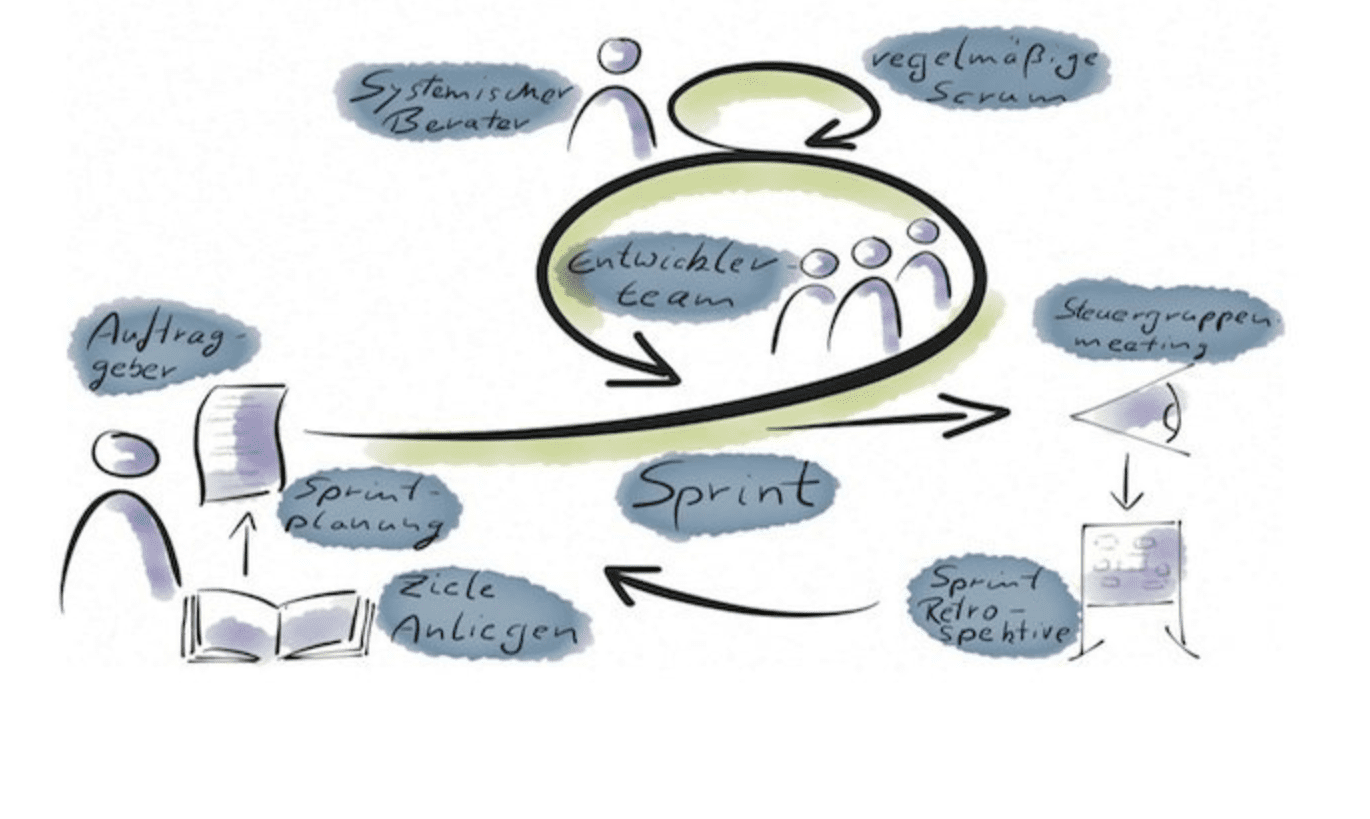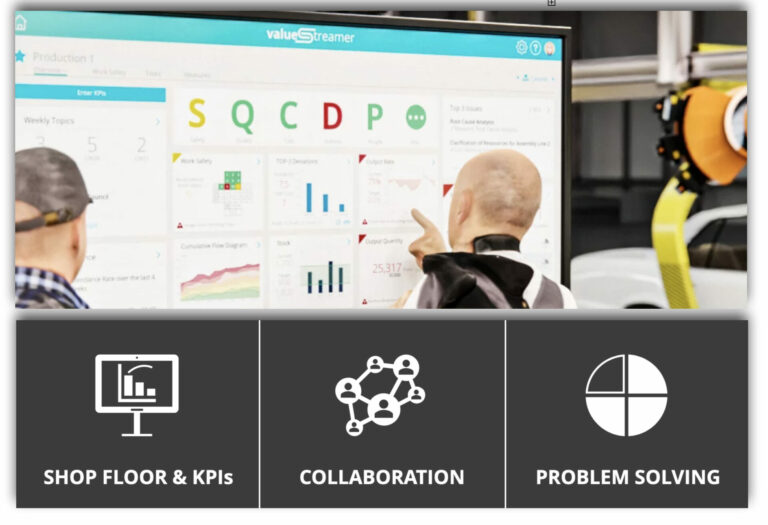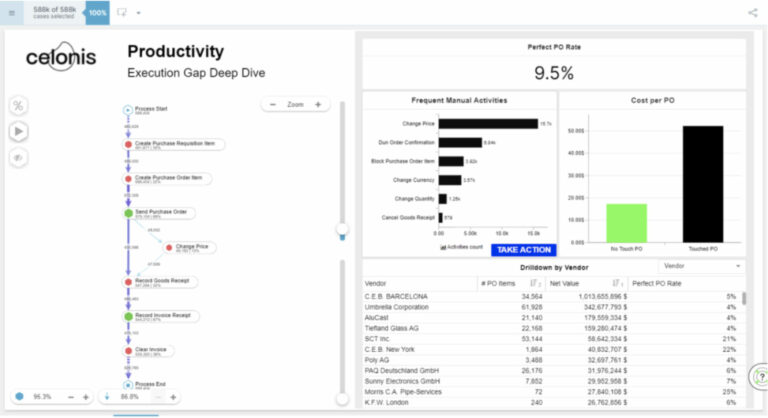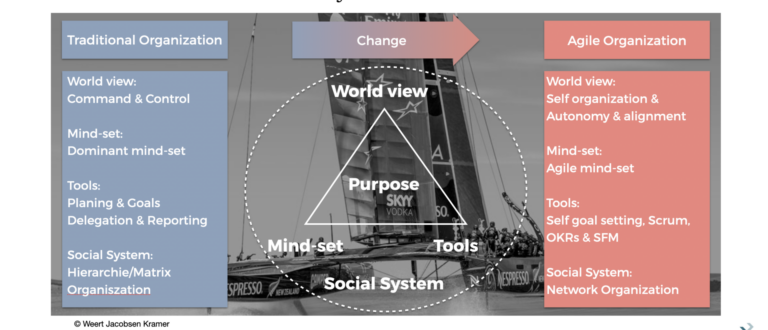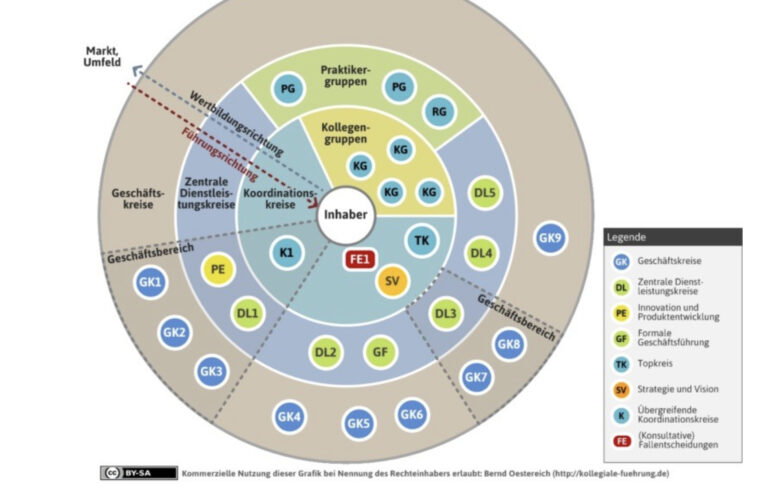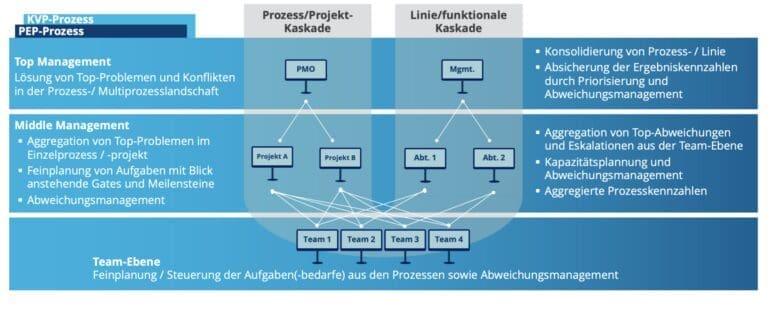Manifesto for agile Organization Development
The dynamic changes in the environment require more than ever a new way of developing organizations.
In the “Manifesto of Agile Organizational Development” we describe the principles of our consulting work.
The key message is that agile organizational development needs agile plans. It is necessary to react to the changes in the organization at any time.
Based on the SCRUM method, which originated in software development, we strive for project organizations with our customers in which we achieve the overall goal through sprints over short stages.
This is a profound paradigm shift that also requires a new form of thinking on the customer side.
The “Manifesto of Agile Organizational Development” serves to clearly state our view.
Manifesto for Agile Organizational Development*
Through our activity we have learned to appreciate these values:
| Individuals and interactions | more than | Processes and tools |
| Specific results | more than | extensive analyses |
| Collaboration with the client | more than | Contract negotiation |
| reacting towards changes | more than | Responding to change |
That is, although we find the values on the right important, we value the values on the left more highly.
* We believe in the agile way of working as outlined in the Agile Software Development Manifesto. (https://agilemanifesto.org/iso/de/).. Software development projects as well as organizational development projects both exhibit a markedly high level of complexity. Therefore, the same principles are relevant in organizational development.

Contact us now!
We have more than 20 years of experience and deliver high quality consulting for your Agile, Lean or Digital Transformation.
12 Principles of Agile Organizational Development
We pursue goals and seek solutions
We define clear goals, which we focus on in every measure and persistently pursue through concrete solutions. We dispense with complicated analyses whenever possible.
Specific results
For us, success means achieving goals. Specific results are our most important measure of progress.
Sustainability
Agile organizational development promotes sustainable development and solutions. The client, the contractor and the employees as customers of the project should be able to maintain a steady pace indefinitely. In the solutions we always take into account the long-term nature of their effect.
Simplicity
We think that simple solutions are preferable to complicated solutions.
We also look for this simplicity in our approach.
The most efficient and effective way to communicate information to and within a project team is face-to-face. We enjoy IT tools that facilitate direct and open communication.
Holistic architecture and design
The best project architectures and project designs emerge as change occurs at four levels of change: Organization, Teams, Leaders, and Individuals.
Co-Creation
Changes in the system always cause changes in its environment and vice versa. We therefore always include the environment of the system in our considerations and our observations.
We know something different
We don’t know more than the customer knows. An effective strategy for advising the customer well is to put our own opinions on the back burner. Instead, we are curious about the client’s ideas. Our highest priority is to guide the client to his own sustainable solutions through process-oriented facilitation.
The customer sets the development themes. We follow.
Voluntary procress
We invite employees to volunteer to work on our projects.
We build projects around motivated individuals. We give them the environment and support they need and trust them to do the job well.
Self-organization
Systems behave self-referentially and strive for stability and sustainability (autopoiesis). Therefore, no solution is as good as the solution that the system develops itself. We believe in the creativity and potential of self-organized teams. Rules and structures in organization serve to maintain system stability and are useful.
Complementary consulting
In consulting, we give room to both intuition and knowledge and bring both together. We are interested in the views of all stakeholders and integrate subject matter experts into our projects and exchange ideas closely.
We do not know what we will know tomorrow
We cannot know what we will learn tomorrow, because if we did, we would have learned it already. We give ourselves the freedom to use what we learn from the progress of the project to optimize our goals and our approach to achieve more than we previously thought possible.
We organize an agile project
Every plan changes. Agile organizational development needs agile plans. That’s why we welcome any changes in the project process. At regular intervals, a steering group reflects on whether the project is achieving its goal and how it can become more effective, and adjusts the project plan accordingly.
We refrain from long-term project plans and remain open to change. We focus on sub-goals and conduct workshops regularly and continuously within a few weeks or months, preferring the shorter time span.

Contact us now!
We have more than 20 years of experience and deliver high quality consulting for your Agile, Lean or Digital Transformation.
